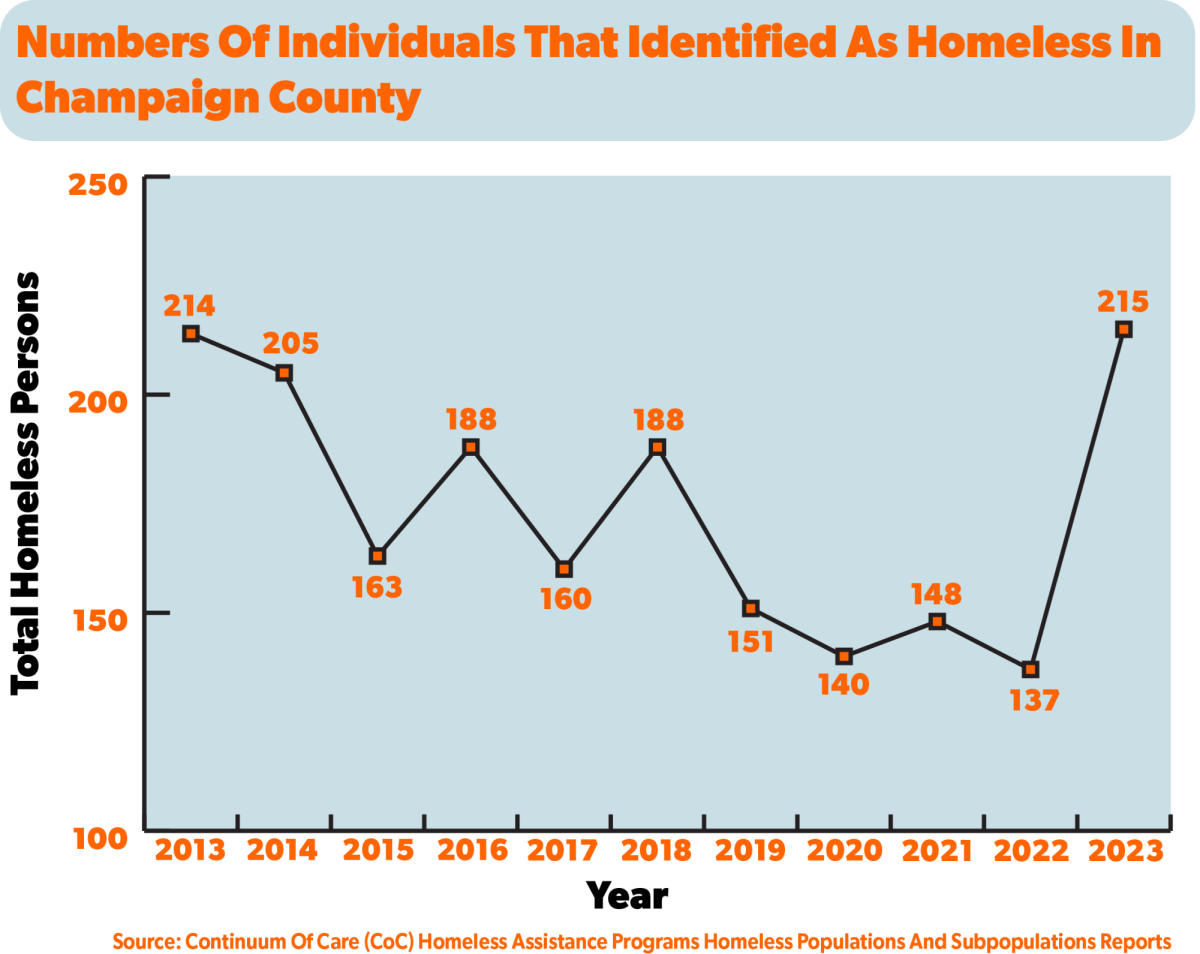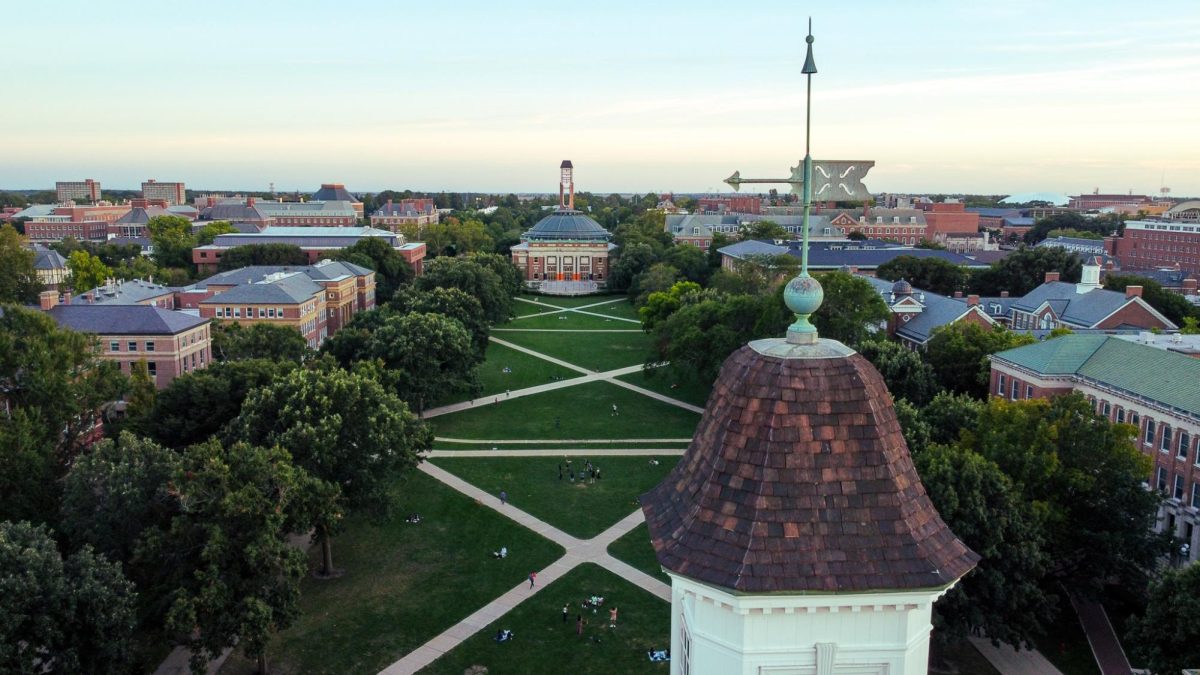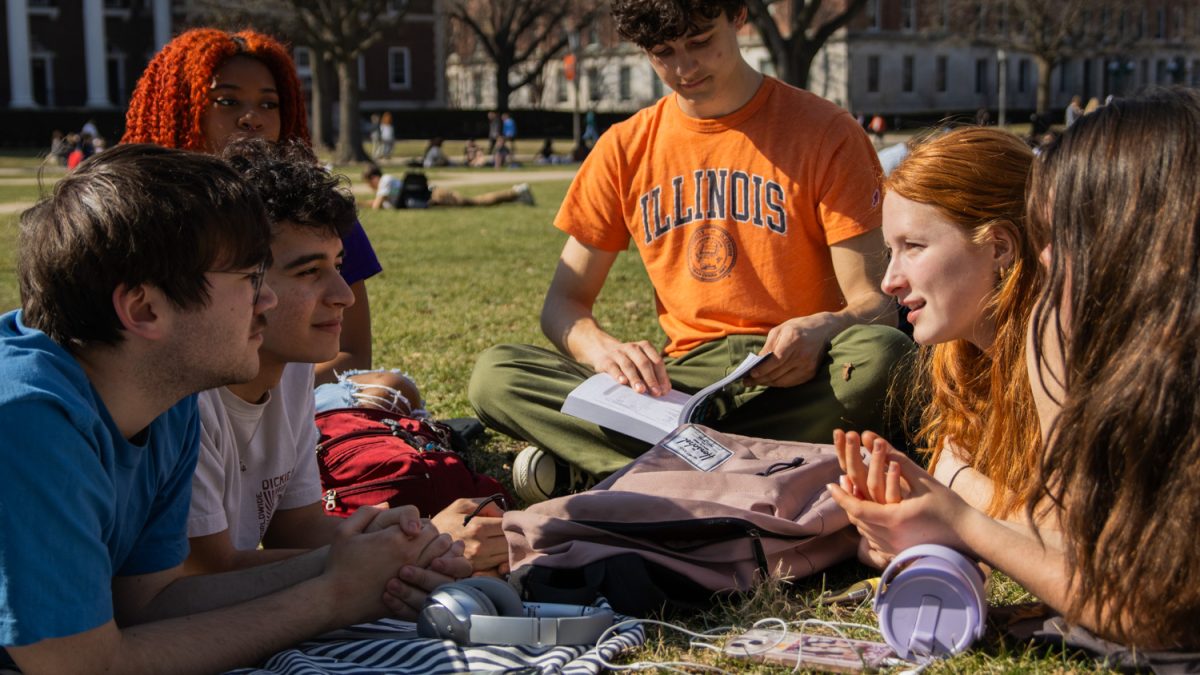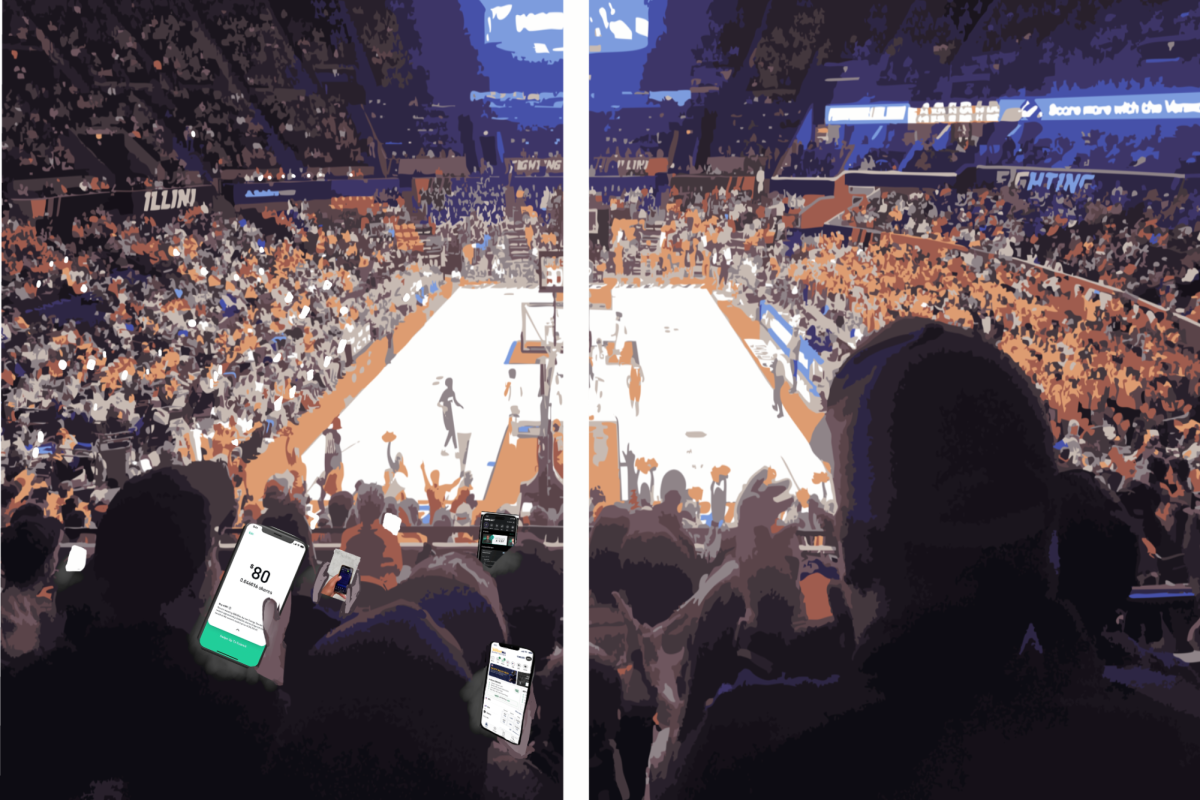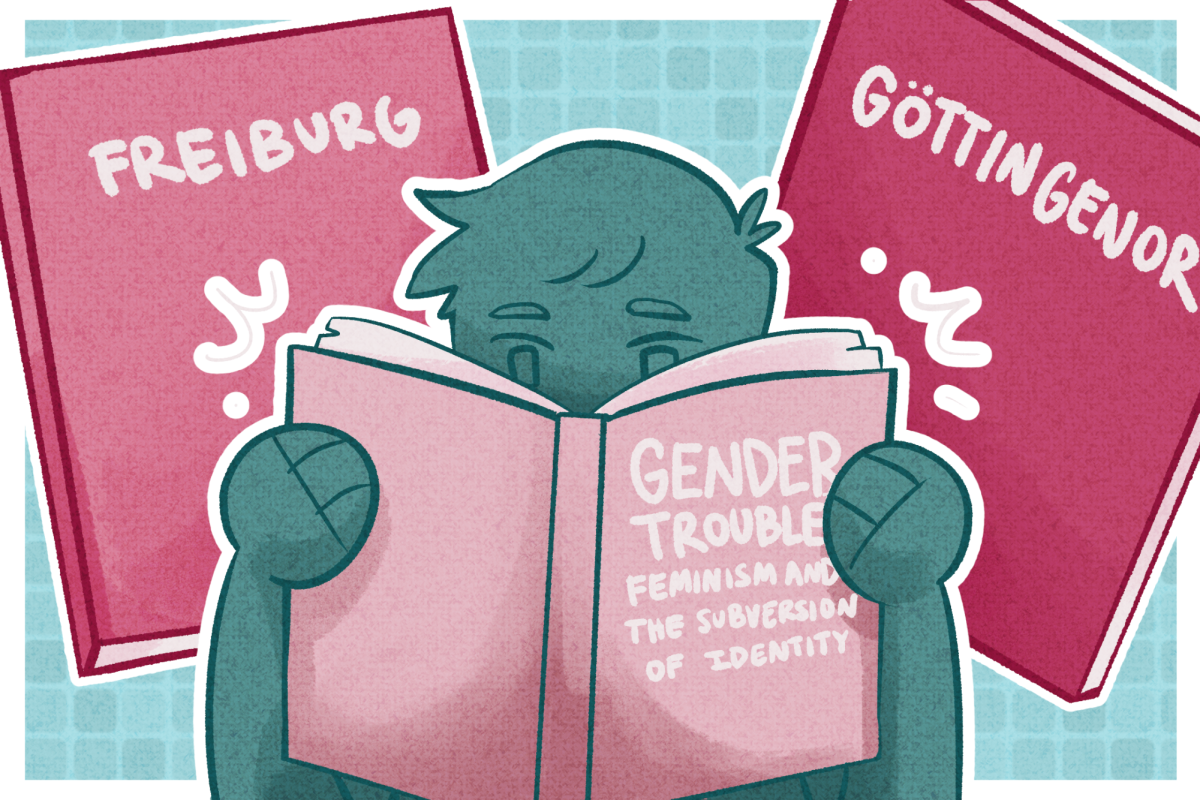Our university is nestled between the twin cities of Champaign and Urbana — a bastion of learning and labor, a jewel amid the corn fields.
The C-U community is so fixated on the University that even the convenience stores far off campus sport orange and blue. Some might even say that the University exists in a microcosm or a kind of bubble. Duality exists in a college town — particularly at this university — between those who live here and those who pay to spend a sizable fraction of their four years here.
When our lives and routines are constrained to the same bubble, it’s easy to become absorbed in our own reality, which is nobody’s fault. As students, we are constantly surrounded by other students who live comfortably enough to attend this university. Our perspective is ultimately quite narrow.
Try keeping this thought in mind while on a simple trip down Green Street for groceries or a meal — it’s sobering. In stark contrast to our fellow students, there are a handful of unhoused individuals — who tend to be mainstays on Green — who are instantly recognizable when one goes on a Target run.
Many of us have grown up conditioned to be desensitized towards unhoused individuals to the point where we dehumanize them. Sometimes we turn them into characters and novelties based on their mannerisms. They become an inconvenience, an obstacle that we’re meant to avoid on our way to the next location. Or they become a threat that you should be wary of.
Get The Daily Illini in your inbox!
There’s a kind of “etiquette” that a lot of us are taught when we’re young in these scenarios: Don’t make eye contact with them, don’t give them money because they’ll just blow it on the same drugs and alcohol keeping them unhoused. They’re lazy and should get a job instead of relying on handouts, or they are some kind of scammer and are not actually homeless.
We’ve turned unhoused individuals into some kind of lower life form that we judge with harsh scrutiny.
If you don’t feel comfortable giving out change, consider buying them food, using gift cards or donating directly to a homeless shelter either with money or essentials. On top of food, homeless shelters often need hygiene supplies and clothes, namely socks and underwear. You could also volunteer your time at a homeless shelter — any help would likely be welcomed.
The discomfort unhoused people face is unimaginable. Between hostile architecture, like nearly every bus stop in the area, and having to deal with extreme weather conditions without permanent housing, very few would willingly subject themselves to this lifestyle and have to panhandle to scrape by. The vast majority of us have lived a life where we have a roof over our heads and are food secure. The same cannot be said for the people we ignore on Green Street every day.
Homelessness does not just look like the individuals one may encounter on Green. There are a multitude of reasons why somebody may lack a permanent home, and none of these should ever serve as a barrier to being treated humanely. Homeless shelters that require sobriety tests or criminal background checks conflict with what should be the fundamental objective of all homeless shelters: to give people a place to stay with dignity and unconditional support.
The number of unhoused individuals in Champaign County is 215 as of January, an increase of 78 from the 137 counted in January 2022, according to the Champaign County Regional Planning Commission. The number of beds available for these unhoused individuals has increased in large part due to the Strides Shelter that opened last year.
The opening of a singular facility is a band-aid solution to the homelessness problem. Like everywhere else, rent has been climbing in Champaign County and is one of many roadblocks that prevent people from accessing permanent shelter, alongside income level, low credit scores and rigid bureaucracy.
What is the University doing for these people? It’s hard to believe that the University is “charged by our state to enhance the lives of citizens in Illinois,” while Illinoisans without adequate resources suffer in the elements minutes away from Alma Mater. The Editorial Board is curious as to what initiatives the University has in place to make good on its mission.
The onus isn’t on us to solve the homeless crisis, even if there are things we personally can do on a micro-scale to help in a small way. But, at the very least, it’s important to step back and examine our own privilege and to be kinder to those who might otherwise be down on their luck.



